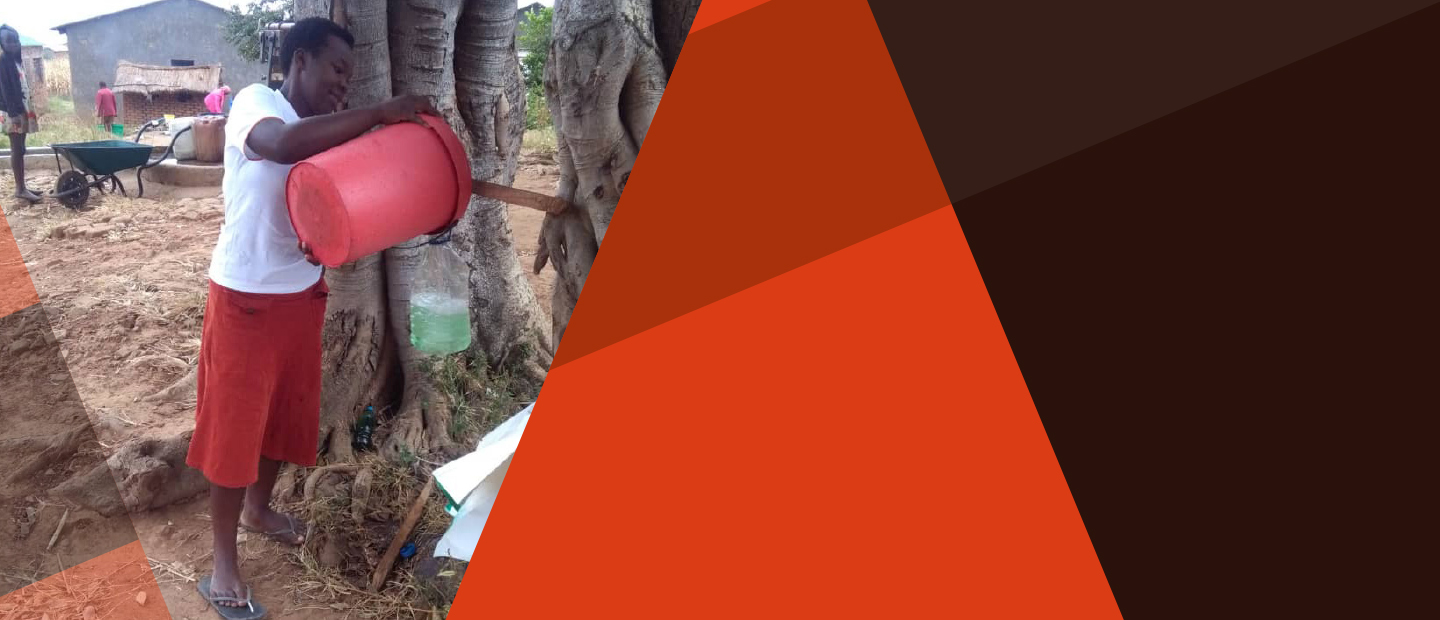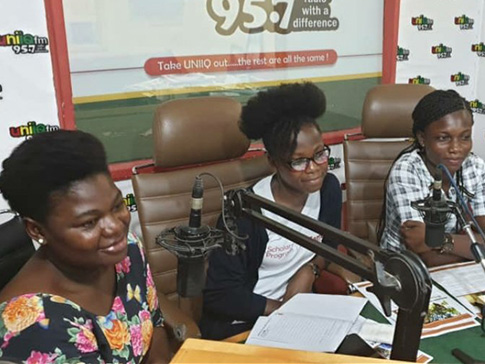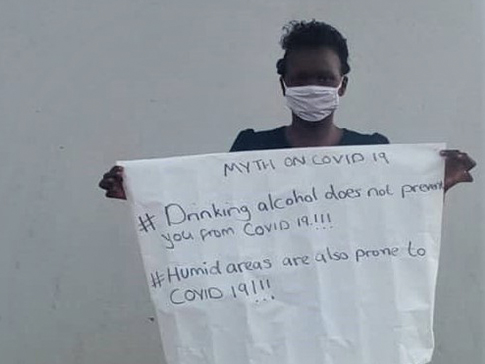
BBC World Service features CAMFED Association COVID activism

Three members of the 157,005-strong CAMFED Association — the network of women leaders educated with CAMFED support — have spoken to the BBC World Service about leading community action on coronavirus.
Their interviews, which were broadcast on the ‘Focus on Africa’ podcast, highlight the importance of swift and contextually-relevant interventions for girls and families living in rural communities.
We don’t have tap water, so we visit the borehole (well) almost every day, and that’s why we decided to use [it] as a center of teaching people how to keep away from coronavirus.
Lynette, CAMFED Association member, Zimbabwe
Lynette (also pictured above) is a student at the University of Zimbabwe in Harare, and has returned home whilst her course is on hold due to lockdown. She says that “as CAMFED Association members it is our norm to give back to our communities during our vacation”.
During this period Lynette and her colleagues have supported good health and hygiene practises by installing hand washing facilities at local wells and disseminating information from the Ministry of Health and World Health Organization. They have also collected study materials from teachers and passed them onto students — particularly those with important exams coming up — to ensure they can keep learning.
In this short video, CAMFED Association (CAMA) member Lynette shares her experience of the coronavirus crisis from her rural community.
During the [radio] session delivery we have learners calling in to ask questions and we have Learning Facilitators also asking questions, ensuring the sessions are very lively.
Pearl, CAMFED Association member, Ghana

Pearl (left) leads a radio broadcast session with other CAMFED Association members.
Pearl is a CAMFED Association Core Trainer, leading on the training of Learner Guides, who return to their former schools as mentors and role models. Whilst schools have been closed during the coronavirus pandemic, Pearl and others have coordinated the continuation of My Better World sessions for out-of-school students via WhatsApp and radio broadcasts. A total of 208 radio sessions have taken place to date, reaching students across 22 rural districts across Ghana.
In her interview, Pearl talks about how young women also use the radio to pass on up-to-date health information to entire communities, by partnering with health and education authorities, and translating advice into local languages
Now is the time when we worry most about the ones who are out of school, and we’ll stop at nothing to try and reach them, so that they don’t slip into child marriage or drop out to go find work.
Tisiyenji, CAMFED Association member, Zambia
Listen to Tisiyenji’s interview
Tisiyenji from Zambia has also used radio broadcasts as a way to reach out to community members, encouraging them to support children towards a return to school. As CAMFED Association District Chairperson she has rallied Association members and CAMFED Community Champions to open classroom spaces or use outdoor meeting places to facilitate small study groups for girls vulnerable to school drop-out.
With her peers, Tisiyenji is providing health support by creating and displaying posters in isolated communities, to provide reliable information and bust myths. They have also learned to sew face masks and have sourced the ingredients to make, sell and donate hand sanitizer.

Tisiyenji holds a poster aimed at busting common misconceptions about COVID.
Follow CAMFED on Medium to see more firsthand accounts of African leadership from our Association members.
